 Those of us who like a flutter on the tables at a casino, or on the races via a bookmaker, for example, have all been known at times to make our bets based on a preference that is rooted in nothing more than superstition.
Those of us who like a flutter on the tables at a casino, or on the races via a bookmaker, for example, have all been known at times to make our bets based on a preference that is rooted in nothing more than superstition.
It is important to clarify exactly what a superstition is. A dictionary definition of ‘superstition’ can be regarded as a widely held but irrational belief in supernatural influences, especially those leading to good or bad luck, or a practice based on such belief. Put simply, it is making a decision based on expecting an element of luck brought about by a particular item, object or action.
Superstitions are a multi-faceted phenomenon which have existed in virtually every culture throughout the ages. This article will however hone in on the role which superstitions play in the modern gambling world.
We aim to provide a fresh and unique approach to understanding the various superstitions which people have about betting and gambling. The focus will primarily be on common superstitions in the United Kingdom, but there will also be a look at some of the more interesting superstitions across various cultures which allow gambling in the modern day.
Number 13
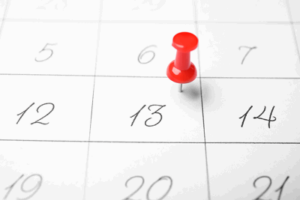 There are some numbers which are regarded as particularly lucky or unlucky across several cultures. The most glaringly obvious of these is the number 13 which is nigh-on universally regarded as seriously unlucky.
There are some numbers which are regarded as particularly lucky or unlucky across several cultures. The most glaringly obvious of these is the number 13 which is nigh-on universally regarded as seriously unlucky.
Almost all cultures regard this number as unlucky, and this is not a light-hearted ‘tongue-in-cheek’ approach to a number bringing bad luck – this number is most genuinely held to be unlucky, so much so that a number of airlines do not have a row 13 when it comes to their seating plans on planes. Examples of this include Qatar Airways, Emirates, United Airlines, Singapore Airlines, Air France, Iberia and Ryanair – a real mix of airlines spreading across the Arab world and the Western world.
On top of this, a lot of hotels in Las Vegas don’t even have a 13th floor in their hotels as many guests would refuse to stay in a 13th floor room due to their perception of the number bringing bad luck.
Conversely there are those that find luck in the number 13 and will always choose it on a roulette wheel.
Betting On Black
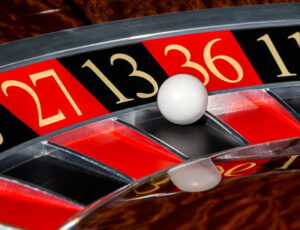 On the roulette table many players avoid betting on the number 13 due to its affiliation with bad luck. Add to this the fact that on a roulette table the number 13 is one of the black numbers, with the colour black being perceived to be unlucky in some cultures – for example in Western culture there are a few instances of black-coloured animals being ominous and/or bringing bad luck.
On the roulette table many players avoid betting on the number 13 due to its affiliation with bad luck. Add to this the fact that on a roulette table the number 13 is one of the black numbers, with the colour black being perceived to be unlucky in some cultures – for example in Western culture there are a few instances of black-coloured animals being ominous and/or bringing bad luck.
The main instance of this is that it has been a long standing old wives’ tale that a black cat crossing your path brings bad luck, but also crows and ravens are regarded in literature as very bad omens, and both of them are black.
It’s therefore easy to see why a lot of players actively choose not to bet on 13 black – it is associated with bad luck in several ways.
Lucky Numbers
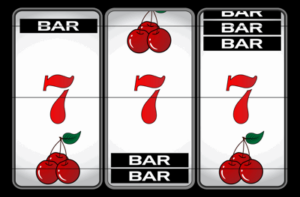 On the flip side, there are some numbers on a roulette table that people bet on incredibly faithfully because they feel they are lucky numbers – a form of positive superstition. The best examples are the numbers three and seven, both of which are commonly regarded as ‘magic’ numbers in Western culture, and this is partly down to references in popular literature and music.
On the flip side, there are some numbers on a roulette table that people bet on incredibly faithfully because they feel they are lucky numbers – a form of positive superstition. The best examples are the numbers three and seven, both of which are commonly regarded as ‘magic’ numbers in Western culture, and this is partly down to references in popular literature and music.
Starting with the number three, the superstition (at least in recent decades) surrounding this number stems from the classic pop song ‘3 is a Magic Number’ which was written for the timeless American educational children’s TV show Schoolhouse Rock. Subject to numerous popular covers throughout the years, the phrase ‘three is a magic number’ is very commonplace in developed English-speaking countries.
The positive superstition based around the number seven also finds its roots in literature (both modern and historic) and some popular references in recent years. Most significantly the number seven was particularly important in the Bible, written around 2000 years ago, with the number seven being central to the story of creation which still has millions of followers across the world to this day. This number often represents perfection or completeness in the Bible – for example there are seven days in a week.
Also consider how central the number seven is to various different concepts we often take for granted: there are seven colours of the rainbow, seven seas, seven continents and seven wonders of the world. There are also significant references to the number seven in modern life, from James Bond’s codename being 007 to incredibly popular brands such as CR7 (Cristiano Ronaldo) being followed by millions across the world.
There are also lucky numbers specific to individuals and these are often birthdays. You will commonly find that people will bet on the number on a roulette wheel that corresponds to the day of the month they were born – or a birth date for someone important to them. This effect actually means less people bet on numbers 32-36 on a roulette wheel as of course there are only up to 31 days in a month. The same pattern can be seen on the National Lottery, where lower numbers tend to be selected more often than higher numbers due to people selecting birthdays.
Power of Red
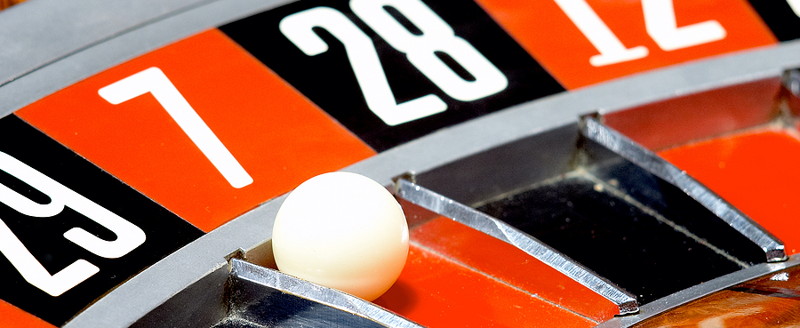
Consider as well the fact that on a roulette table, both the numbers three and seven are red numbers.
The colour red has many positive connotations which further enhance these numbers’ associations with good luck.
In Asian culture the colour red is regarded as lucky, so significantly that the owner of Cardiff City FC Vincent Tan changed the colour of the club’s home kit from a royal blue, which was steeped in tradition, to a scarlet red, because it was considered a lucky colour in his home country of Malaysia and might attract more supporters to the club.
Is There A Cultural Tie In?
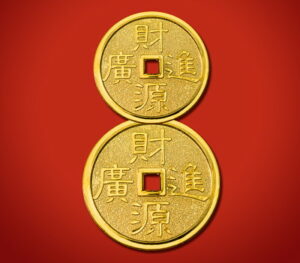 When it comes to betting on one of the colours on a roulette table, a lot of people will choose to go with red over black because of the association which red has with positive feelings and good luck. More than anything, red is quite a warm and welcoming colour, associated with heat, courage, vigour and most of all love. Black, on the other hand, is often regarded as a cold, negative and ominous colour.
When it comes to betting on one of the colours on a roulette table, a lot of people will choose to go with red over black because of the association which red has with positive feelings and good luck. More than anything, red is quite a warm and welcoming colour, associated with heat, courage, vigour and most of all love. Black, on the other hand, is often regarded as a cold, negative and ominous colour.
Another example of numbers that are commonly regarded with superstition are the numbers four and eight in China, and this is for a very interesting reason: the way the numbers are pronounced.
The Chinese pronunciation of the number four is almost exactly the same as the way in which the word ‘die’ or ‘death’ is pronounced in Chinese, depending on how the translation is interpreted, and as a result the number has gathered an association with bad luck among Chinese gamblers.
But you can turn this on its head and make the opposite observation for the number eight because of its association with the term ‘prosperity’ which has resulted in the number 8 being regarded as a symbol of luck among Chinese gamblers.
There are many complexities to Chinese numerology, but there is a general rule of thumb that gamblers avoid anything related to the number four, and are more attracted to anything to do with the number eight.
Sports: Bogey teams
 One of the most interesting dynamics of superstitions in modern betting is the perception of ‘bogey teams’ in sports. Most commonly this concept is applied in football, but it exists in nearly all major sports.
One of the most interesting dynamics of superstitions in modern betting is the perception of ‘bogey teams’ in sports. Most commonly this concept is applied in football, but it exists in nearly all major sports.
Most sports teams have one or more ‘bogey teams’ which refers to a team that always beats them, or that they consistently suffer bad luck against, and as a result many sports punters will actively avoid betting on their otherwise favoured team, or even potentially will place a bet on the bogey team in anticipation of their preferred team suffering from bad luck.
Some good examples can be drawn from the footballing world, in recent years Crystal Palace have become something of a bogey team for Liverpool ever since the teams shared an infamous 3-3 draw late on in the 2013/14 Premier League season which ended up ruining Liverpool’s title bid that season.
An example of a bogey team outside of football in recent years can be found in cricket. The England team has come to find Ireland as something of a bogey team with the latter’s ascendancy on the world stage cricket-wise in the last decade or so, culminating in Ireland now being allowed to compete in test cricket.
England have consistently put in shoddy performances against their Irish counterparts, often struggling on their way to scrappy wins when they have got the victory. For example, the first-ever test match between the two nations at Lords in 2019 saw England bowled out for 85 in their first innings – nothing short of an embarrassment at the time, even though they would go on to win the match.
On top of this, the last time Ireland and England competed in a One Day International match (ODI) in August 2020, the Irish prevailed with a 7-wicket win. You could ask any England cricket fan the next time they play Ireland, in any format, if England should beat them and they would likely reply with a yes.
However, you could struggle to find a fan who would put their money where their mouth is and bet on England to win because of the shaky performances the side has produced against Ireland recently.
The existence of a bogey team can lead a lot of sporting fans to not only lose faith in their team’s chances of winning against their bogey team, but it can actually cause fans to be actively convinced that they are going to suffer a loss – and it probably influences the players and manager too. It is also often the case that the bogey team is regarded as an underdog and as a result there will generally be good odds in the betting markets, prompting many fans to bet on the bogey team to win out of nothing more than superstition.
Behavioural Superstitions
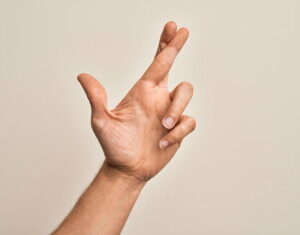 Perhaps one of the most commonly seen forms of gambling superstitions is in the form of physical actions and/or behaviour. The most obvious example is crossing your fingers as an action that is commonly associated with wishing for (and perhaps bringing about) good fortune.
Perhaps one of the most commonly seen forms of gambling superstitions is in the form of physical actions and/or behaviour. The most obvious example is crossing your fingers as an action that is commonly associated with wishing for (and perhaps bringing about) good fortune.
This is a habit that transcends gambling, it applies to virtually any sport or activity in which an individual or team could benefit from an instance of good luck. So much so that pretty much everyone in the western world will have crossed their fingers in a moment of desperate longing for good luck at some point in their life. The logo for the National Lottery includes crossed finger, which says everything about what it means to gamblers.
However, when it comes to gambling against algorithms, the not even your most lucky superstition can help you. The fact is that algorithms in slot machines, for example, are completely random, regardless of whether you have gone through a ‘lucky’ routine prior to sitting down to play slots online.
Whether you are watching a horse race that you have bet on, or playing at a roulette table, or even if your favourite football team has a penalty, there is an inexplicable tendency to cross your fingers rooted deep in our subconscious, the theory being that it brings good luck despite the gesture having absolutely no logical connection to determining any particular outcome.
Banking At The Table
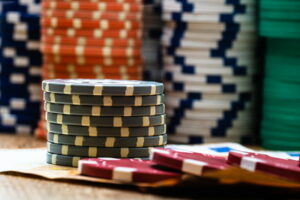 Another widely held gambling superstition that is more applicable at casinos is counting your money or your chips while still at a table: it is regarded as a big no-no by most gamblers. The reason is mostly based on the perception that counting your money before a game is finished, or even immediately after it finishes, is incredibly bad taste.
Another widely held gambling superstition that is more applicable at casinos is counting your money or your chips while still at a table: it is regarded as a big no-no by most gamblers. The reason is mostly based on the perception that counting your money before a game is finished, or even immediately after it finishes, is incredibly bad taste.
Counting your money before or just after a game has finished is considered bad taste as it can be a display of insensitivity in front of fellow gamblers who may be down on their luck.
Simultaneously, many gamblers believe in the idea of ‘the pride that comes before a fall’ and this would mean that counting your chips or money before you have finished playing for the day would effectively result in you jinxing yourself and you would experience bad luck.
Because of this, you have to be careful to what you’re doing at the table in a casino – checking how many chips you have after winning a hand of blackjack or hitting a winning spin on roulette could seem like a natural and innocuous thing to do but many gamblers could take exception to it due to its perceived rudeness association with bad luck.
Dice Blowing
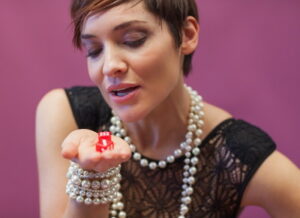 The last of the most commonly seen behavioural superstitions in the western world is people blowing into their hands when they are holding dice prior to rolling them in the hope they will roll a favourable number.
The last of the most commonly seen behavioural superstitions in the western world is people blowing into their hands when they are holding dice prior to rolling them in the hope they will roll a favourable number.
This seemingly random superstition originates from the famous 1955 movie ‘Guys and Dolls’ in which Marlon Brando pleaded with so-called ‘lady luck’ to not “wander all over the room and blow on some other guy’s dice”.
In gambling spheres there have been rumours that some dishonest gamblers would line their dice with a moisture-activated adhesive so that when they blew on the dice in their hands it would activate the adhesive and cause the dice to fall on the side they were hoping for.
However, given the likelihood of the tampered-with dice landing in an unnatural position due to sticking to an object, this rumoured method of cheating might be just that: a rumour and nothing more.
Locational Superstitions
 Here is an odd superstition among a specific cohort of gamblers that has developed in recent decades: entering the casino through any door except the main/front entrance.
Here is an odd superstition among a specific cohort of gamblers that has developed in recent decades: entering the casino through any door except the main/front entrance.
The logic is that entering through the main entrance brings you bad luck, and the foundation for this superstition is based on the entrance to the MGM Grand Casino which, when it opened in 1996, was in the form of a golden lion.
The perception amongst gamblers visiting the MGM Grand Casino from the mid-1990s was that in order to enter the venue, you had to walk into the lion’s mouth, which gave off the feeling you were going to be swallowed up by the casino and spat back out, or even of being eaten alive – i.e. foreboding an episode of bad luck.
As a result the casino found that many of its visitors were trying to avoid the main entrance, in particular Chinese visitors who viewed it as especially bad luck, and the MGM Grand Casino renovated its entrance to more traditional-looking doors, instead installing an enormous bronze lion above the entrance.
On top of this, at casinos around the world some gamblers feel it is unlucky to enter via the front entrance because you are likely to encounter or come into contact with people who are leaving the casino – most likely after they have lost their money. They perceive that the bad luck of the departing players will rub off on others.
$50 Bills Are Bad Luck
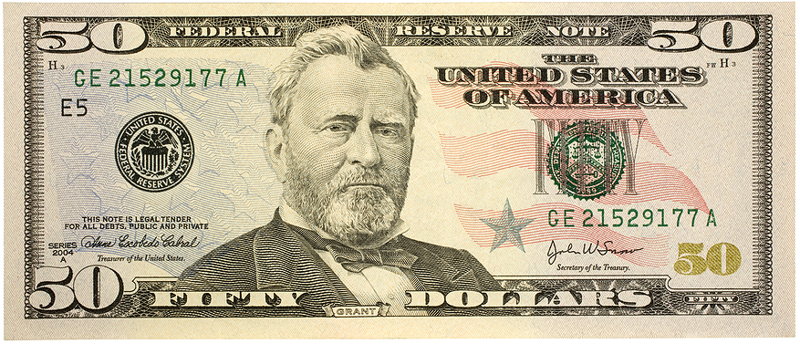
One of the most interesting superstitions in gambling is that many Americans refuse to use, or be paid out in, $50 notes in casinos. This is especially curious because you would think that the $50 bill is not only a common denomination of the US Dollar but in a gambling setting it would be a very convenient denomination.
The history behind this superstition is mafia-based. Back in the days of when the mafia effectively ran the gambling metropolis of Las Vegas, when a mob member killed someone they were rumoured to usually leave a $50 dollar bill in the pocket of the victim’s jacket when burying them in the Nevada desert, but there seems to be no rhyme or reason as to why this was the case.
Despite the lack of logic behind this superstition many gamblers in America simply refuse to deal in $50 bills on account of their perception that this particular bill is very unlucky.
Lucky Charms And Favourite Clothing
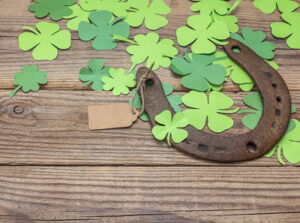 This is one of the most commonly found yet highly variable superstitions which transcends any one country or culture: lucky charms and/or clothing.
This is one of the most commonly found yet highly variable superstitions which transcends any one country or culture: lucky charms and/or clothing.
Many superstitious gamblers have an item of some sort which they deem a ‘lucky charm’ – it could be a particular piece of jewellery, for a poker player it could be a particular card guard, or it could be something as simple as the eternally typical lucky pair of socks.
It seems to be that this concept of a lucky charm or a lucky piece of clothing has a lot more longevity behind it than most other superstitions.
When it comes to lucky charms, the common denominator is that when a gambler seems to have benefitted from an astounding or seemingly impossible piece of good luck, they attribute this luck to something material on their person at that one time, whether it is a piece of clothing they are wearing or one of the accessories they are using.
A common example of lucky clothing is wearing anything red when visiting the casino. Take the Chinese culture for example, where wearing red is considered to be a symbol of good luck because it is a colour that represents wealth and as a result is a lucky colour by association.
In fact, the colour red is considered so tightly attached to good fortune that at Chinese weddings for example the colour red is traditionally used for everything from the bride’s dress to the envelopes of money that are handed out.
Tying into the positive perception people have of the colour red, it is also very noticeable that more gamblers bet on the colour red at a roulette table than black.
In terms of lucky charms, many gamblers feel they should carry a specific item with them when going to the casino in order to benefit from good fortune. These items, of course, have to be something you can either wear or carry in your pocket without hindrance.
Some traditional examples of these lucky charms are a rabbit’s foot, a horseshoe, or a four-leafed clover, all of which have a basis in old wives tales. You can even see in modern day gambling-related merchandise that there tends to be a version of any item which has a four-leafed clover or a horseshoe on it – prime examples would be card guards at poker.
Room For Sentiment?
 Lucky charms can also be very individualistic and personal, as it is founded in a person’s perception of what is lucky. Many sports fans for example will consider their team’s playing shirt as a lucky charm, but in the UK for example you are generally not allowed to wear football shirts in the casino as it is against the dress code.
Lucky charms can also be very individualistic and personal, as it is founded in a person’s perception of what is lucky. Many sports fans for example will consider their team’s playing shirt as a lucky charm, but in the UK for example you are generally not allowed to wear football shirts in the casino as it is against the dress code.
As a result many people may opt for a substitute of a football shirt so that they can still carry around the logo of the team they support, so it is quite normal to see people in the casino with a wristband, watch, baseball cap (where permitted) or card guard embossed with their club’s logo.
Jewellery is also quite a long-standing tradition when it comes to lucky charms. From service personnel and their dog tags, to members of the aristocracy in the United Kingdom and their signet rings, people can find a lot of sentimental value in jewellery, not just material value.
Wedding rings can be quite a common lucky charm – after all, the item is a daily reminder of what many people consider to be the happiest day of their lives. As a result it is easy to see why there is an association between good luck and your wedding day.
Why Do We Have Superstitions?
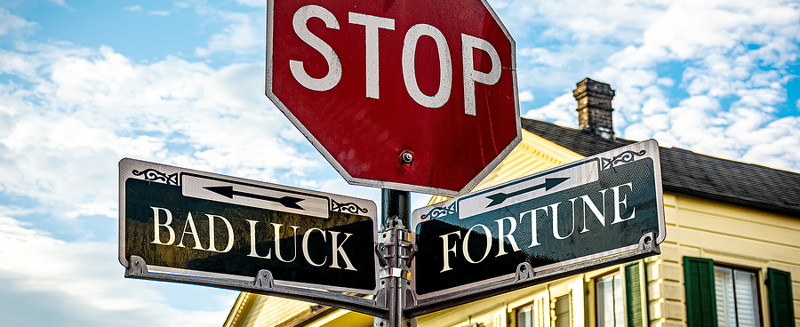
This is the key question here: whatever the superstition is and how it manifests itself, why do we have superstitions? What is the underlying reason for such irrational and illogical beliefs?
Well, one answer is that people have an eternal and undying wish to exert control over the outcome of something which they do not actually have a say in. There is a part of the human condition which refuses to accept that you are reduced to a bystander in some situations, with a complete inability to affect the outcome. Lucky charms for example are our way of calling on ‘lady luck’ to look favourably upon us.
When there is no logical or rational way of explaining a particular situation, people just naturally attribute a superstitious belief to the situation in order to fill the gaps, in effect.
We struggle to accept and/or wrap our heads around the idea that some things are determined purely by chance, so we naturally resort to superstition to give outcomes some form of explanation.
Final Thoughts
The most overriding – and in fact interesting – thing when it comes to the topic of superstitions in gambling is just how individual it is to each person.
Some people pay absolutely no attention whatsoever to the idea of superstitions, often branding it ‘false hope’ or ‘false belief’, yet millions upon millions of people across the world hold superstitions based on little to no empirical evidence that the superstition in question has any measurable impact on any one particular event or outcome.
Some of these superstitions just come naturally – the main example being crossing your fingers, this is something that almost everyone is aware of and most people just naturally cross their fingers in an instance where they are hoping for good luck.
On the other hand, some superstitions are a bit more consciously forged and require a bit of thought, such as not entering a casino through the main entrance of the MGM Grand Casino because there is a perceived analogy of being swallowed whole by the casino, being a symbolic representation of losing all your money.
What we can say for sure, however, is that the world of superstition is eternally fascinating regardless of which culture you look at, and wherever you go you will find some weird and wonderful reasons behind the superstitions people hold.